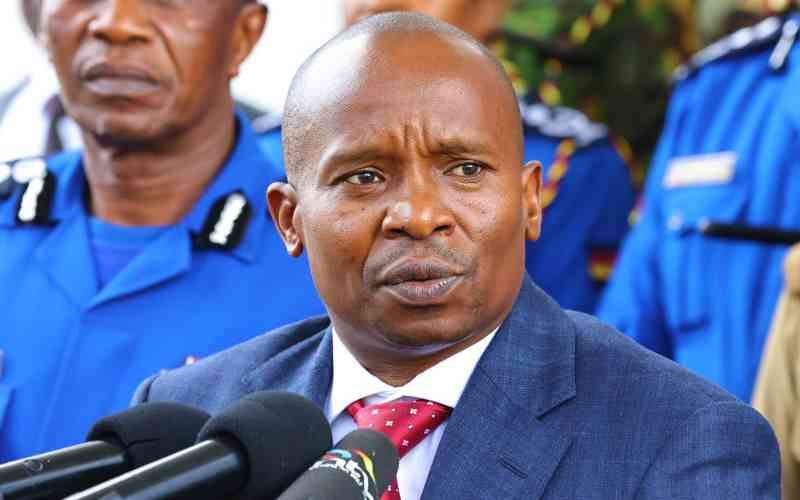
Kenya has made the decision to postpone the reopening of its border with Somalia following a series of attacks attributed to the Al-Shabaab terror group. Interior Minister Kithure Kindiki announced the delay, stating that the phased reopening of the Mandera, Lamu, and Garissa border posts, previously scheduled for May, cannot proceed at this time.
The move comes in response to recent incidents near the border that resulted in the deaths of five civilians and eight police officers, with Al-Shabaab being held responsible. Minister Kindiki emphasized the need to address the recent surge in terrorist attacks and cross-border crimes before moving forward with the border reopening.
The closure of the Kenya-Somalia border was officially implemented in October 2011 due to Al-Shabaab attacks. This extremist group has been engaged in an insurgency against the federal government in Mogadishu for over 15 years. While plans to reopen the border were announced in July 2022 following discussions between Kenyan President Uhuru Kenyatta and his Somali counterpart Hassan Sheikh Mohamud, the actual implementation did not take place.
Initially, the border reopening was intended to occur in phases. Mandera was set to reopen within 30 days of the announcement, followed by Garissa within 60 days, and Lamu within 90 days. However, the recent attacks by Al-Shabaab have prompted Kenya to reassess the security situation and postpone the reopening indefinitely.
Since its military intervention in southern Somalia in 2011 and its involvement in the African Union force in Somalia (Amisom), Kenya has also become a target for Al-Shabaab. The group not only fights against Somalia’s federal government but also recruits local youth and carries out attacks both within Somalia and across the border in Kenya.
The decision to delay the reopening of the Kenya-Somalia border underscores the importance of addressing security concerns and ensuring regional safety before proceeding with such initiatives. It highlights the need for joint efforts by the governments of Kenya and Somalia to combat terrorism, strengthen border security, and seek sustainable solutions to the ongoing instability in the region.
